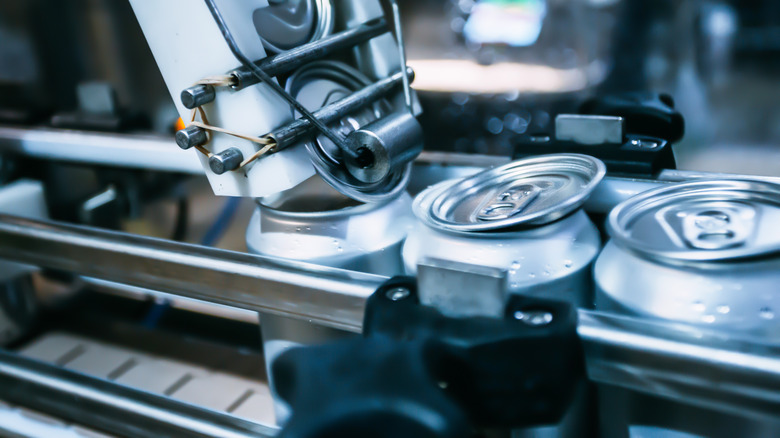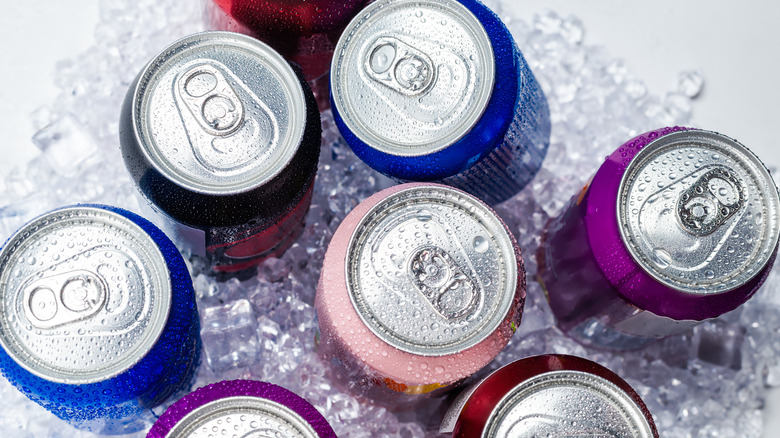What The Carbon Dioxide Shortage Could Mean For Your Groceries
Given the ever-growing concerns about climate change and the excess presence of greenhouse gasses in Earth's atmosphere, a shortage of carbon dioxide may seem like a welcome development. However, an ongoing shortage of the gas is leading to complications in the already challenged food market due to the outsized role it plays in the production of everything from deli meat to beer.
According to the The Wall Street Journal, food and beverage companies across the U.S. are scrambling to find suppliers of the gas, which is used for everything from putting the fizz into soda and beer to freezing and shipping frozen veggies and pizza. The gas is a byproduct of industrial processes like refining ethanol and fertilizer and usually faces tighter supplies in late summer as fertilizer production slows and demand for cold, carbonated drinks goes up. But a problem at a natural source of CO2 in Mississippi has created more issues this year.
As reported by Gas World, Jackson Dome, a 200-square-mile site rich in carbon dioxide, was contaminated early this year when oil prices began skyrocketing and its owner, Denbury Energy, attempted to use the existing CO2 supply for "enhanced oil recovery" and attempted to drill new CO2 "wells" to use to fill its industrial contracts. Unfortunately, the CO2 from the new wells contained contaminants, which processors were not immediately able to fully filter out and make the gas safe for use in food processing.
Supply chain stress
Although The Wall Street Journal reports that the issue in Jackson Dome has been rectified, it may still take time for the market to recover, especially as other facilities go into scheduled down-time this fall. While WSJ claims trade groups are expecting the market to normalize by mid-to-late October, shortages and price increases could still be on the horizon in the interim.
Major players in the food industry, including Kraft Heinz and Tyson, are scrambling to supplement their CO2 supplies, ordering from sources around the country to avoid production cutbacks. One brewery owner reported he had been able to secure enough CO2 to maintain production, but had to pay double his usual rate for the gas. The increased demand and extra transportation costs are likely to lead to more price increases at grocery stores, where the country is already seeing record inflation due to supply chain problems.
The U.S. is not alone in this issue. Though Food Processing notes the causes of the shortages are different, the Europe is also seeing a shortage in CO2. While the U.S. supply issues are tied to reduced ethanol production during the pandemic and contamination, Europe's shortage is a result of reduced fertilizer production. The situation has led to speculation about alternative methods, including using nitrogen or filtering CO2 from the atmosphere, though the latter may not be immediately practical (per Food Dive).

